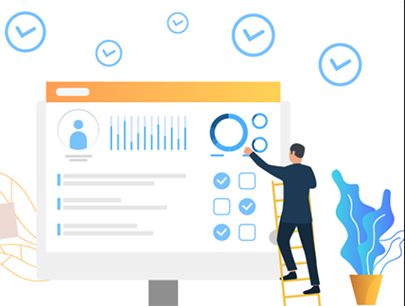Managing Technical Support through Service Desk Tools
A service desk is the hub of any IT environment. Service desks come in many shapes and sizes, but they all seek to make interaction with IT as painless as possible for end-users. It is where users submit requests, where technicians diagnose problems, and where tickets generate work orders.
Each day, thousands of tickets are raised, processed, and resolved at the service desk. It's paramount to have the service desk tools necessary to manage those tickets efficiently. Service desk tools can range from simple ticketing systems to complex, integrated solutions.
What is a Service Desk?
A service desk is a ticketing tool that supports employees and provides service to customers. It promotes specific business requirements, such as ITIL, and integrates with other systems. Service desk tools need to be robust, scalable and integrated with multiple platforms, including CRM and ticketing systems.
The service desk has to be accessible from anywhere, at any time, and that can depend on the type of end-user you're serving. If you're dealing with individual employees, that means having self-service options, such as an online knowledge base or self-service support portal.

Features of the Best Service Desk Tools
To help you select the best service desk tools for your organization, we've compiled a shortlist of features of robust help desk tools:
Service Level ManagementService level management is the process of setting service level objectives and making sure that they are met. It's essential to run a service desk so that service level agreements are met,
Incident and Problem ManagementIn an incident management chain, incidents are logged and then passed to the appropriate group for resolution. When an incident is resolved, it is removed from the chain and marked as closed. Problems, however, are tracked separately and inherited from incidents. Issues are escalated when they pose challenges at the group level.
Knowledge ManagementKnowledge management is a system that allows knowledge to be easily shared amongst all service desk staff.
Why Service Desk Tools?
As a service desk manager, you have a lot on your plate. You're in charge of customers, services, incidents, cases, tickets, and workloads. And you're responsible for keeping your service desk running smoothly.
Fortunately, there are tools out there that can help you manage your service desk. Service desks are tasked with providing 24/7 support for customers via phone calls, emails, chats, web requests, web pages, mobile apps, and self-service portals.
The dynamic pace of technological innovation and the growth of mobile devices and the Internet of Things (IoT) drive service desk innovation. Essential service desk functions have become more complex as businesses find new ways of adapting to technological changes.
Enterprise service desk solutions have various capabilities, including incident management, request management, service management, change and configuration management, asset management, knowledge base management, and performance management.
A service desk tool makes it easy for team members to communicate and ensures everyone stays on the same page. The task list view helps users assign tickets to others, a task management view streamlines workflows, and real-time updates show which tickets are active and in progress.
Best Service Desk Tools
A well-designed service desk can be the difference between a happy customer and a dissatisfied one. A service desk often provides the first contact someone has with your business, so it needs to be positive. This guide covers five essential service desk tools:
Zendesk Features- Cloud-based help desk solution ideal for small to midsize businesses.
- Offers a variety of integrations, including with third-party apps and service
- highly customizable
- auto-responders
- email integration
- live chat support
- mobile app.
- live chat
- email support
- document sharing
- knowledge base
- customized ticket fields
- knowledge base
- customer analytics
- cloud-based
- manage all support requests
- create customizable, detailed tickets
- automate responses to common issues
- manage help desk resources
- integrate with service desk ticketing system
- integrate with other tools such as email, file sharing, and instant messaging
- customer service portal
- integrate with other help desk tools
- cloud-based
- integration with third-party services
- multiple ways to communicate
- track conversations and manage requests
- multiple languages
- Integrate with mail
- Create automation workflows
- manage tickets, emails, and live chats
- live chat functionality
- the user interface is easy to navigate
- ability to create canned responses
The service desk is a core function of all modern businesses. Without an effective service desk, a company's technology infrastructure will break down, employee productivity will decline, and customers will suffer—the reason IT organizations need to invest in the right tools and systems to manage their service desk.